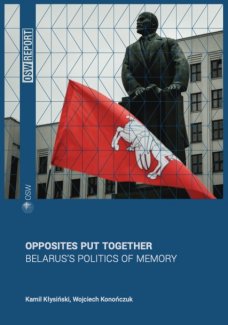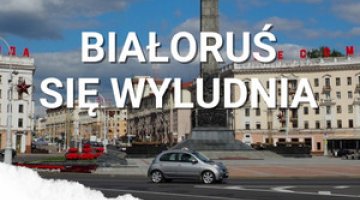Opposites put together

The outbreak of the Russian-Ukrainian conflict in 2014 became a turning point in Belarus’s historical narrative and forced the regime to emphasise Belarusian distinctiveness from Russia more than before. The activation of the politics of memory, which had previously been conducted in a very conservative manner, became one of the key tools to accomplish this task. In order to strengthen the foundations of an independent Belarus, the government began to highlight the elements of the past that point towards an independent path for national development, and which at the same time allow for Russian dominance to be weakened. Changes have been manifested by reaching beyond the framework of the Soviet tradition to a greater extent and more frequent references to events that had previously been ignored or distorted. The government resorted to the historical narrative of the opposition and independent historians, which it had formerly opposed, yet this shift was carried out very cautiously. The process of shaping the politics of memory is not yet complete and is likely to evolve further in the coming years. Both the direction and the pace of change will depend on the nature of the political regime and its evolution.




